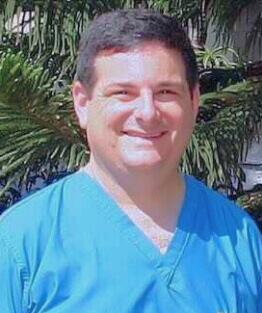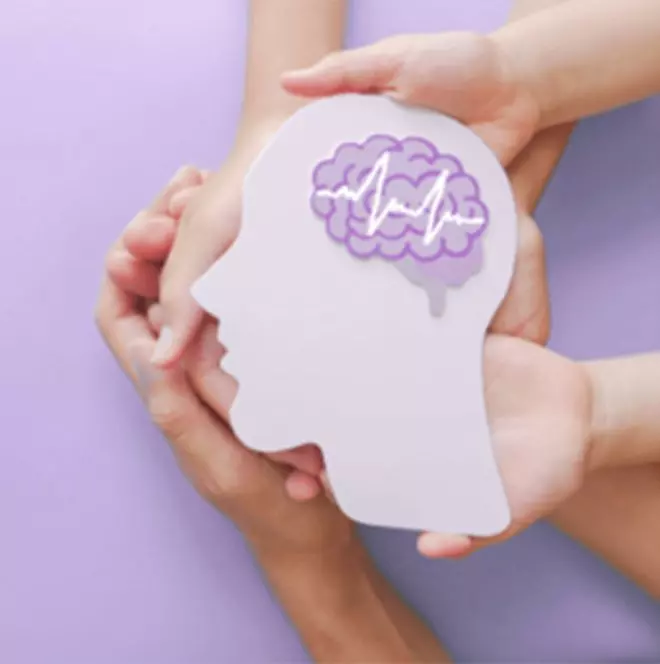
If you’re a 40-something woman, we encourage you to start increasing your awareness of heart disease prevention and cardiovascular disease prevention. Cardiovascular disease is the number 1 killer of women over age 25 in the United States, regardless of race or ethnicity.1 Preventing heart disease and stroke is critical because together they are responsible for the death of 1 in 3 women each year. That’s more than all cancers combined. The good news is that 80% of cardiac and stroke events can be prevented.2,3
So, how do you prevent cardiovascular disease (CVD)? To answer that, let’s first explore what role hormones play in CVD. Peri- and menopause are significant mental, and physical stages in your life, and depending on how you choose to treat your symptoms of menopause you may be impacting your long-term health. Specifically, your risk of heart disease. The changes in heart health may be one of the most overlooked risks associated with the drop in hormones during peri- and menopause.4
Most of us mistakenly believe that heart disease is an older man’s problem, but there are female-specific risk factors that can cause heart problems in a woman’s late 30s, 40s, and into their 50s. That’s much younger than most people would expect, but the death rate speaks volumes – approximately one woman dies of CVD every minute. Even though those numbers are staggering, only 20% of American women believe that heart disease is her greatest health threat – most women think of breast cancer. While 3% of women in the US will die from breast cancer, 33% will die from CVD.2
Cardiovascular Disease in Women
Cardiovascular disease (CVD) is a term used to refer to conditions that affect your heart and/or blood vessels. CVD can be associated with a build-up of fatty deposits inside the arteries, and an increased risk of blood clots and stroke. Multiple problems can result from these fatty deposits – this buildup narrows your arteries, making it harder for blood to flow through them. If a blood clot forms, it can stop blood flow which can cause a heart attack or stroke.
When women start perimenopause (late 30’s into their 40’s), the risk for heart disease increases. In younger women who have undergone early or surgical menopause, the risk for heart disease is also higher. The common factor leading to CVD for both perimenopausal women and the younger women who had surgically induced menopause is the drop in the hormones estrogen, progesterone, and testosterone.
Post-menopausal women have a 2–3 times higher risk of heart disease, stroke, and type 2 diabetes than premenopausal women. This increased risk is caused by increased blood pressure, high blood sugar, excess body fat around the waist, and elevated cholesterol levels associated with menopause.
As women, we grow accustomed to regular hormonal changes. It all starts with puberty, and thereafter we ride out the highs and lows of estrogen and progesterone that are constantly changing. Throughout our lives, we undergo changes in the hormones estrogen, progesterone, and testosterone that can have long-term impacts on heart health and the risk of CVD, including heart attacks.7,8
Age beautifully. Goodbye getting old.

How Aging and Menopause are Impacting Your Heart
In your late 30’s and early 40’s, there are huge changes in your ‘hormonal milieu’ which is directly associated with changes in your body composition. Some of these changes are obvious like how fat begins to get stored in your midsection and back, and your lean muscle decreases no matter how much you exercise.
Other changes often occur even before you may observe any signs that heart problems are present. One serious silent change includes how your arteries and veins start to struggle to do their job. These subtle changes might explain why women can experience ‘undetermined’ chest pain in menopause. It’s easy to label these changes as ‘stress’ or ‘menopausal symptoms’, but women with ‘undetermined’ chest pain syndromes have a 2x greater risk of developing heart disease in the next 5-7 years.9
When you transition into menopause there are often an increased cholesterol and triglyceride levels. Surprisingly, 30–50% of women develop hypertension (BP >140/90 mmHg) before the age of 60. Once you are in menopause hypertension is a major risk factor.9 With menopause, you are more sensitive to sodium which can cause fluid retention and hypertension. Swelling of the legs, hands can be obvious signs.8,9
Hypertension can cause some familiar menopause symptoms like palpitations, hot flashes, anxiety, headaches, chest pain, tiredness, and insomnia.9 The sharp rise in BP may be due to hormonal changes that affect: 1) the abilities of the arteries and veins to properly constrict and dilate, and 2) metabolic changes with aging.9
Hormone Replacement Therapy & Cardiovascular Disease
We read it everywhere, “ the onset of menopause is 51 years,” and while this is probably an accurate average age, there is wide variability. We also know that typically perimenopause begins far earlier – even in your mid to late 30s. Women should be aware of the changes in hormones and the possible risks associated with ignoring their declining hormone levels as they age, starting in their 30s.
While many things can put you at risk for heart disease, there are some things that you can control, and others that you cannot control. With the most up-to-date medical information and medical care, heart disease in women can be treated and prevented. Again, as many as 80% of heart and stroke events can be prevented.2,3
Hormone replacement therapy (HRT) has been shown to reduce the future risk of cardiovascular disease when taken within 10 years of menopause.4 If peri- and menopausal women avoid HRT it can actually be detrimental to their health.4,5 Some experts are now recommending that HRT should be considered as part of a general prevention strategy for women at the onset of menopause. HRT positively impacts heart health by:3,4,5
Decreasing blood pressure,
Reducing inflammation that may help the lining of your arteries and veins,
Regulating how well your blood vessels can move blood,
Creating more functional veins and arteries, by i
ncreasing the elasticity of the blood vessels, allowing them to widen and let the blood flow more freely.
Enhancing the immune system which is closely related to the vascular system and aging,
Providing micronized progesterone has been shown to have a beneficial effect on blood pressure in postmenopausal women.
Hypertension is a major risk factor for CVD and stroke.
Increasing insulin sensitivity and improving the distribution of where your body stores fat,
HRT & Preventing Cardiovascular Disease – Is It Safe?
Even with all the evidence regarding the positive impacts of HRT, some healthcare providers are apprehensive about prescribing it because they are confused about the association of HRT with cardiovascular disease (CVD). We still get reports from patients about doctors who are trying to steer them away from HRT, women who could benefit from HRT both short and long-term.
The ongoing misinterpretation of the Women’s Health Initiative (WHI) study has led to decades of women and healthcare professionals being unnecessarily concerned about the potential risks of HRT, particularly as it relates to CVD. This misperception has resulted in hundreds of thousands of women needlessly enduring menopause symptoms all because of one outdated research study that has been retracted.
Numerous studies have followed up on the misguided initial WHI reports, and not only dispute the WHI findings but largely support the preventive effect of HRT on CVD. For example, a Finnish study followed up on the WHI results, and have refuted many of their findings. This study confirmed that initiating HRT (oral or transdermal) within 10 years of the onset of menopause significantly reduces CVD and death by around 50%.9 Modern HRT regimens contain lower doses of estrogens and progesterone and are micronized, which means they are more easily absorbed, so less can be used.
Age beautifully. Goodbye getting old.

Evidence to Support HRT
To be clear, taking HRT requires a medical diagnosis and prescription, it is not an over-the-counter treatment. The benefits and risks of HRT vary by dosage, regimen, and timing of when you start taking it. Numerous studies have shown that women with symptoms, and who are under the age of 60, will definitely benefit from taking HRT when properly prescribed by a licensed healthcare professional.9
It is recognized that symptoms of menopause, such as hot flashes, anxiety, sleep issues, mood swings, and reduced libido, all can improve with HRT. In addition, there is robust and compelling data that suggest there are quality-of-life improvements, prevention of CVD, reduced incidence of some cancers, prevention of cognitive decline, reduced osteoporosis, prevention of Type 2 diabetes, and even an increased lifespan when taking HRT.
When you compare the benefits of taking a medication to the risks of taking it, that’s called the benefit: risk ratio. HRT provides a favorable benefit: risk ratio. In other words, taking HRT clearly provides more benefits than risks. This positive benefit: risk ratio has been reiterated in multiple science guideline articles.4,5,6,7 When evaluating the benefit: a risk profile for taking HRT, two important measures need to be taken into consideration:
1) The woman’s age. Specifically, start taking HRT before 60, and
2) The number of years since menopause began. Starting HRT less than 10 years after menopause began has been shown to provide positive CVD prevention benefits. There is a lower incidence of CVD in women who take HRT within 10 years of menopause.4,5,6
Some of the most conservative scientific resources, like the International Menopause Society (IMS), are clear in their recommendations regarding HRT use. The IMS has stated that women should be informed that:
HRT with estrogen is associated with no, or reduced, risk of CVD,
HRT with estrogen and progestogen is associated with little or no increase in the risk of CVD,
Taking HRT under the age of 60 years does not increase a woman’s risk of CVD,
The presence of cardiovascular risk factors is not a contraindication to using HRT.
The IMS guidelines go on to state that the initiation of HRT reduces coronary heart disease.6 They also report that the daily oral estrogen-progestogen can be cardioprotective, meaning it can protect your cardiovascular health. IMS goes on to say that, in addition to improving menopause symptoms, HRT has repeatedly been shown to be beneficial in maintaining a woman’s long-term health.6
Other Ways to Prevent Cardiovascular Disease
Here are a few lifestyle changes you could make
Avoid or quit smoking.
Lose weight and/or maintain ideal body weight.
Participate in aerobic exercise for 30-40 minutes 3-5 times per week.
Follow a diet low in saturated fats and high in fiber.
Treat and control medical conditions like diabetes, high cholesterol, and high blood pressure.
There are risk factors for coronary artery disease that women should be aware of
Diabetes
High blood pressure
Elevated LDL (low-density lipoproteins) cholesterol
Low HDL (high-density lipoproteins) cholesterol, sometimes called “good” cholesterol
Sedentary lifestyle
Obesity
Family history of heart disease
Summary
We encourage you to start increasing your awareness of heart disease prevention and cardiovascular disease prevention. Preventing heart disease and stroke is critical because together they are responsible for the death of 1 in 3 women each year. The good news is that cardiac and stroke events can be prevented. The changes in heart health may be one of the most overlooked risks associated with the drop in hormones during peri- and menopause.4
The decline of hormones with menopause plays a critical role in CVD. How you choose to treat your menopause symptoms may be impacting your long-term health, especially your risk of heart disease. The changes in heart health may be one of the most overlooked risks associated with the drop in hormones during peri- and menopause.4
Whether you are in your 30’s, 40’s or 50’s, seize the opportunity to assess your cardiovascular risk and consider using HRT at an earlier stage in order to gain maximum cardiovascular disease protection. Women within 10 years of their menopause can potentially gain significant improvements in their cardiovascular health, overall health, and life expectancy by taking HRT.
It’s time to change the conversation about HRT. It is critical that healthcare professionals are educated regarding the potential health benefits to be gained by taking HRT. Even the healthiest patients on HRT will need to periodically evaluate their HRT use. Estrogen, progesterone, and testosterone hormone replacement for menopause are extremely safe. Winona takes safety very seriously. We use only the safest hormones and tailor the delivery system to the individual needs of each woman.
At Winona, you and your health care provider will discuss your medical history and risk factors, as well as how HRT can be tailored to your needs. We will ask a series of health questions to make sure you are a good candidate for hormone therapy. A women’s health specialist will work with each patient to tailor a treatment that is both safe and effective.
While menopause is a normal phase of life, there are ways to treat the often-chronic symptoms that result from menopause. Winona encourages women to try various treatment options whether it is hormone replacement therapy, diet, or lifestyle changes (or all three) to identify what works best for them. Remember, menopause is a positive beginning, with the opportunity to take preventive action against major health risks associated with the decreasing hormones associated with menopause.
Whether experiencing severe or minor symptoms, women can embrace their evolving bodies by providing the nutrients their body needs like estrogen, progesterone, and testosterone. Bioidentical hormones used in HRT can enable them to move through this sometimes precarious phase with grace and wellness. Let the Winona women’s health care experts work with you to replace the missing ingredients to help you feel, and stay, young and healthy.
“This article is for informational purposes only and does not constitute medical advice. The information contained herein is not a substitute for professional medical advice. Always talk to your doctor about the risks and benefits of any treatment.”
Age beautifully. Goodbye getting old.

References
https://www.mayoclinic.org/diseases-conditions/heart-disease/in-depth/heart-disease/art-20046167
https://www.goredforwomen.org/en/about-heart-disease-in-women
https://academic.oup.com/eurheartj/advance-article/doi/10.1093/eurheartj/ehaa1044/6120040?login=true
https://my.clevelandclinic.org/health/articles/16979-estrogen–hormones
Menopause: diagnosis and management. NICE 2015. https://www.nice.org.uk/guidance/ng23
Baber RJ, Panay N, Fenton A; the IMS Writing Group. 2016 IMS Recommendations on women’s midlife health and menopause hormone therapy. Climacteric 2016;19:109-50. http://www.ncbi.nlm.nih.gov/pubmed/26872610
Stanczyk FZ, Hapgood JP, Winer S, Mishell DR. Progestogens used in postmenopausal hormone therapy: differences in their pharmacological properties, intracellular actions, and clinical effects. Endocr Rev 2013;34:171–208 http://www.ncbi.nlm.nih.gov/pubmed/23238854



